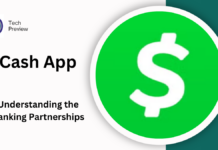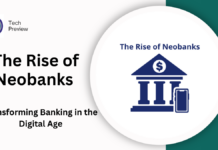There’s a group in South Africa called SASSA, and they help people who need money because they’re having a tough time. But sometimes, they say no to some people who ask for help. If they say no to you and you don’t agree, you can ask them to look at your request again.
If you asked them to look again between January and September 2023, you should see what they decided. If you use a bank called Postbank, they just said they sent out the money to people who were supposed to get it. So, you might want to check if you got your money.
What is the eligibility criteria for SRD?
The eligibility criteria for the Social Relief of Distress (SRD) grant in South Africa are as follows:
- Residency:
- Applicants must be South African citizens or permanent residents.
- Foreign nationals with valid permits may also qualify.
- Age:
- Applicants must be 18 years or older.
- Income Threshold:
- The SRD grant is intended for individuals who do not have any income or receive a minimal income.
- The specific income threshold may vary, but generally, applicants should not exceed a certain income level.
- Unemployment or Inability to Work:
- Applicants must be unemployed or unable to work due to illness, disability, or other valid reasons.
- Not Receiving Other Social Grants:
- Applicants should not be receiving other social grants such as the Old Age Pension, Child Support Grant, or Disability Grant.
- Documentation:
- Applicants need to provide relevant identification documents, proof of residence, and other necessary paperwork.
- Application Process:
- Apply through the official channels (online, SMS, or in-person).
- Follow the instructions carefully and provide accurate information.
Visit the SASSA Appeal Check Place
First, use your computer to visit the SASSA website here: (https://srd.sassa.gov.za/appeals/appeal). This website is where you can find out about your appeal if you ask SASSA for help.
Put in Your Information
When you are on the website, look for the part where it asks for your details. You will need to type in your special South African ID number, your phone number, and sometimes a code they gave you when you asked for help. Make sure you type everything correctly!
Find Out About Your Appeal
Once you have put in your information, click the button that says “Send Pin.” The computer will work for a bit and might send you a secret code. If it does, type that code in. After that, you will see what SASSA decided about your appeal.
Check What Happened
After you enter your information, the computer will tell you what happened to your request. There are three possibilities:
- Good News: They said yes, and you will get the help you asked for.
- Not So Good News: They said no, and you will not get the help.
- Still Waiting: They are still thinking about it, so you have to wait more.
Talk to SASSA If You Need Help
If they are still thinking about it or if something goes wrong, it is a good idea to talk to SASSA. They can help you and tell you more about your situation.
Write Down What You Find Out
Remember what the computer tells you because it might be important later. If you have questions or need to talk to SASSA again, this information can help.
The funding for social grants in South Africa primarily comes from the government. These grants are part of the country’s social welfare system and are administered by the South African Social Security Agency (SASSA). The government allocates budgetary resources to ensure that eligible individuals receive financial assistance through various grant programs.
Here are some of the funding sources:
- National Budget Allocation:
- The South African government allocates funds for social grants in its annual national budget.
- These allocations cover various grants, including the Older Person’s Grant, Child Support Grant, Disability Grant, and others.
- Tax Revenue:
- Most of the funding comes from tax revenue collected from citizens and businesses.
- Taxes contribute to the overall pool of resources available for social welfare programs.
- Social Security Fund:
- Some grants, such as the Unemployment Insurance Fund (UIF), are funded through contributions from workers and employers.
- The UIF provides temporary financial relief to individuals who lose their jobs.
- International Aid and Donor Funding:
- In certain cases, international organizations and donor agencies financially support South Africa’s social welfare programs.
- These funds may be earmarked for specific initiatives or projects.
- Government Reserves and Surpluses:
- The government may use reserves or surpluses from other budget areas to fund social grants during emergencies or special circumstances.
- Public Awareness and Advocacy:
- Public awareness campaigns and advocacy efforts play a role in securing funding for social grants.
- Citizens’ voices and advocacy groups often influence government decisions related to social welfare spending.
In South Africa, several social grants are available to provide financial assistance and support to eligible individuals and families. Here are some of the key social grants administered by the South African Social Security Agency (SASSA):
- Older Person’s Grant (Old Age Pension):
- This grant is for elderly individuals aged 60 years and older who meet the eligibility criteria.
- It provides financial assistance to help cover basic living expenses.
- Child Support Grant:
- The Child Support Grant is aimed at primary caregivers of children under the age of 18.
- It helps ensure that children have access to essential needs such as education, healthcare, and nutrition.
- Care Dependency Grant:
- This grant is for parents or guardians of children with severe disabilities.
- It assists in meeting the additional costs associated with caring for a child with special needs.
- Grant in Aid:
- If you receive a social grant but require someone to take care of you, you may be eligible for the Grant in Aid.
- It provides support to those who need assistance due to illness, disability, or other circumstances.
- War Veteran’s Grant:
- This grant is specifically for military veterans who served during specific periods.
- It recognizes their contribution and provides financial aid.
- Foster Child Grant:
- Foster parents or guardians caring for children who are not their biological children can apply for this grant.
- It helps cover the costs of raising foster children.
- Disability Grant:
- Individuals with permanent disabilities can apply for the Disability Grant.
- It provides financial support to help with daily living expenses.
Conclusion
In conclusion, here is what to do if they say no to your request for help:
If they still say “No,” you might need to ask again, but do it differently. It is a good idea to talk to SASSA to get help. They know how to make it work and can tell you what to change in your request so it can be a “Yes” next time.
Some Questions
Check Out More: SRD SASSA appeal status for new 2024 payments- Navigating Cash App: Understanding the Banking Partnerships
- The Rise of Neobanks: Transforming Banking in the Digital Age
- Immediate 6.0 Intal: Revolutionizing the Future of Trading Technology.
- The Truth About Immediate A5 Alrex: Scam or Legitimate Opportunity.
- Transforming Insurance Brokerage: Woodruff Sawyer’s Innovative Use of AI and Data
- Klarna Partners with Adyen to Launch In-Store Buy Now Pay Later Solutions: A Game Changer for Retail Financing
- Aven Becomes a Unicorn After $142 Million Series D Funding Round: Key Insights and Impact
- Visa’s Digital Emergency Card Replacement: Enhancing Financial Security and Convenience
- Telekom FintechAsiaNet: Transforming Finance in Asia









